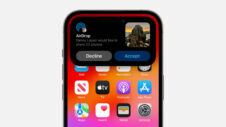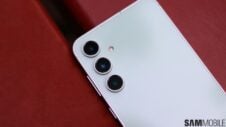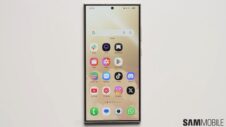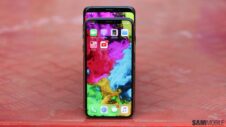Samsung is gearing up for a tough year ahead. There has been a consistent decline in demand for its memory chip products. This is the business division that makes the bulk of its profits. Due to low demand and falling prices, Samsung now expects a 70% decline in profit for Q4 2022 compared to the same period the previous year. The company's vice chairman has acknowledged that the situation will remain dire for the foreseeable future.
Demand has also contracted for the company's smartphones as customers put off purchases due to the challenging economic circumstances. Rising business costs elsewhere may also be eating into the margins, leaving Samsung with no choice but to either raise prices or trim its profits. There's no indication that Samsung plans on making its mobile devices more expensive. That would be counterproductive in a market that's already seeing a demand contraction.
Having a diversified business usually helps in these situations. As a conglomerate, Samsung has an incredibly diversified business. From shipbuilding, construction, biotechnology, and textiles to consumer electronics, batteries, displays, and mobile devices, there's a lot that the Samsung Group does. Each business unit has its own set of unique challenges and perhaps Samsung Electronics, the division that oversees mobile device and consumer electronics, hasn't quite been able to build a moat around its core business like Apple has.
Over the past few years, hardware innovation hasn't appeared to be the priority for Apple that it once was. The company has effectively done the bare minimum to move the needle as it focused its energies elsewhere. Apple gradually built a solid ecosystem with subscription services making up the robust foundation.
Its latest Q4 2022 earnings show that Apple's subscription services brought $19.19 billion in revenue, almost half of the $42.63 billion brought in by iPhone sales. While it doesn't provide an exact operating profit break down for each segment of the business, it's quite likely that the profit margins are higher for services compared to hardware, simply because the input costs are lower.
This strong ecosystem ensures that even if people aren't upgrading their iPhones every year, they continue to pay a certain amount of money to Apple every month to access its excellent music, TV, and game streaming services. That's in addition to other services such as Apple News+, Fitness+, iCloud+ as well as the App Store. Even if hardware revenues were to decline, at least there's a solid subscription business there to backstop the potential for a major dip.
Samsung's backstop has been its various divisions that provide hardware. Samsung Display is the world's leading supplier of display panels but it also finds itself in a tough position. Orders have slowed as demand for new products has stagnated. Similar economic headwinds have also impacted Samsung's chip division. Memory chip demand has fallen off a cliff and new contract chip manufacturing are drying up.
Samsung finds itself in the perfect storm because all of these divisions face a similarly hostile environment. Furthermore, the dependence that these units have on each other is a vulnerability. For example, Samsung's mobile division sources batteries and displays from sister companies. Reduced smartphone demand means that companies like Samsung Display will see a fall in demand for their products even from Samsung Electronics.
When Samsung was pushing the envelope on hardware and showcasing its technological prowess to the world, Apple went the other way and created a behemoth that's difficult for any of its rivals to match now. That decision is going to pay true dividends now as the economic headwinds impact device sales for all manufacturers, including Apple.
Samsung's stint in music streaming was short-lived. Since its devices run on Android, Samsung doesn't get a cut of the app sales and in-app purchases made on the Play Store. The Galaxy Store is obviously no match for it. Samsung's cloud storage service was also shut down and as things stand, it seems impossible that we'd see an Apple TV rival from Samsung.
Perhaps none of this aligned with Samsung's business priorities at that time but did it possibly make a mistake by not viewing subscription services as a long-term play? Or did it not want to be seen as replicating Apple's moves? Then again, it wasn't like Apple was breaking new ground. Apple Music, one of its biggest streaming businesses, was the result of Apple buying the Beats Music streaming service in 2015.
It's hard to argue with the brilliance of Apple's plan. Businesses are ultimately about generating profits and maximizing shareholder returns. Romanticizing the idea of doing things the way they've always been done is what gets businesses into trouble. That's what led to the downfall of giants like Nokia and BlackBerry. While that outcome is quite far from reality for Samsung at this point in time, it's one that the company shouldn't forget.







